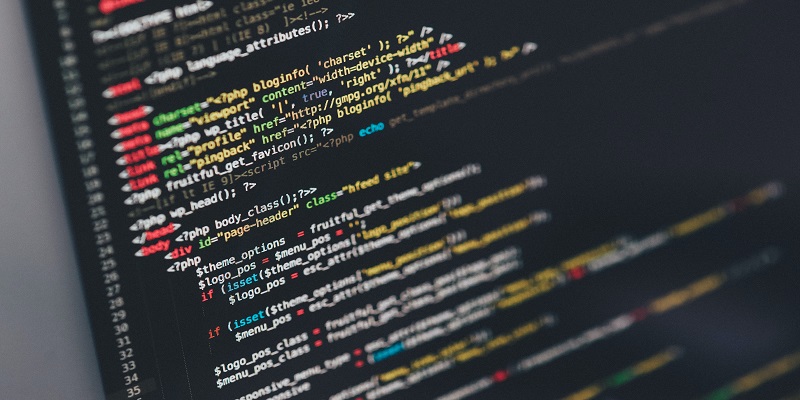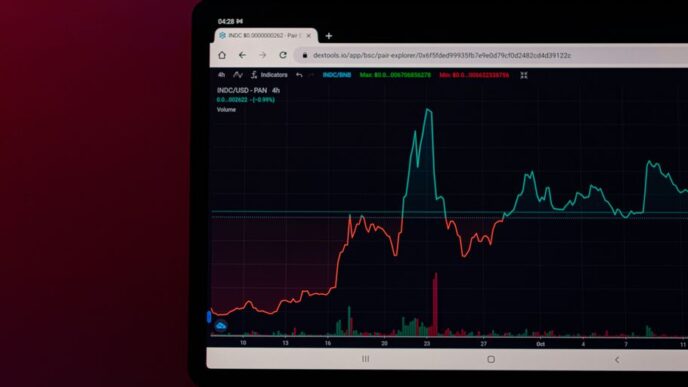Introduction
Blockchain technology has revolutionized numerous industries, promising increased security, transparency, and efficiency like never before.
Whether you’re an avid investor or just simply curious about this groundbreaking innovation, get ready to unleash the power of blockchain and discover its vast potential in shaping our future. Join us as we explore the ins and outs of cryptocurrencies, delve into the intricacies of smart contracts, and uncover how these elements work together harmoniously in unlocking endless possibilities. Get ready for a mind-blowing adventure through the realm of blockchain.
What is Blockchain Technology?
Though it is most commonly associated with Bitcoin and other cryptocurrencies, blockchain technology has the potential to revolutionize a whole host of industries beyond just finance. Blockchain is a distributed ledger system that allows for secure, transparent and tamper-proof recordkeeping. Because it is decentralized and not subject to any single authority, it has the potential to upend traditional top-down models of business and governance.
One of the key features of blockchain technology is its security. Blockchain uses cryptographic algorithms to ensure that each transaction is unique and verifiable. This makes it virtually impossible for fraudsters to tamper with the ledger.
Another key feature of blockchain is its transparency. All transactions that are recorded on the blockchain are public and viewable by anyone. This could potentially create new levels of accountability in industries like supply chain management and banking.
Blockchain technology enables smart contracts. Smart contracts are self-executing contracts that can be coded into the blockchain. This means that they can be executed automatically without the need for third-party intermediaries. This could have major implications for a wide range of industries from insurance to real estate.

Advantages of Blockchain Technology
There are numerous advantages of blockchain technology that make it well-suited for a wide range of applications. For example, blockchain technology can be used to create tamper-proof records of data, which has a wide range of potential uses in supply chain management, financial recordkeeping, and more. Additionally, blockchain technology is decentralized, meaning that it is not subject to the whims of any single organization or government. This makes it incredibly valuable for applications where data needs to be shared amongst a large number of parties. Blockchain technology is often lauded for its security features; because data is distributed across a network of computers rather than being stored in a central location, it is much more difficult for hackers to access and tamper with data.
Types of Cryptocurrencies
The world of cryptocurrencies is vast and ever-evolving. Here are some of the most popular types of cryptocurrencies in circulation today:
Bitcoin: Bitcoin is the original cryptocurrency, created in 2009 by Satoshi Nakamoto. It is a decentralized peer-to-peer payment network that enables users to send and receive payments without the need for a third party.
Ethereum: Ethereum is a decentralized platform that runs smart contracts, which are applications that run exactly as programmed without any possibility of fraud or third party interference.
Ripple: Ripple is a real-time gross settlement system (RTGS), currency exchange, and remittance network built on a distributed ledger database. It is designed to facilitate global financial transactions, including cross-border payments.
Bitcoin Cash: Bitcoin Cash is a cryptocurrency that was created in August 2017 as a fork of Bitcoin. It offers faster and cheaper transactions than Bitcoin, while still maintaining the same level of security and decentralization.
Litecoin: Litecoin is a cryptocurrency that was created in 2011 as an alternative to Bitcoin. It offers faster transaction times and improved storage efficiency than Bitcoin.
Using Smart Contracts
A smart contract is a computer protocol that facilitates, verifies, or enforces the negotiation or performance of a contract. Smart contracts allow the performance of credible transactions without third parties. These transactions are trackable and irreversible.
Smart contracts were first proposed by Nick Szabo in 1996, who defined them as “a set of promises, specified in digital form, including protocols within which the parties perform on these promises.”
The use of smart contracts can remove middlemen, reduce costs and speed up processes. They can also be used to create new markets and services that might not have existed before.
One example of a smart contract is an insurance policy. Let’s say you wanted to buy car insurance. You could do this through a traditional insurer, or you could use a smart contract. With a traditional insurer, you would fill out an application, send in your documents and then wait for someone to approve your policy. This process can take days or weeks.
With a smart contract, the process would be much faster. You would fill out an application online and then receive an instant decision. If you were approved, your policy would be generated automatically and you would start paying premiums immediately. The whole process could take less than 10 minutes.
Another example of a smart contract is a will. Traditionally, when someone dies, their family has to go through the probate process to settle their estate. This can be a long and expensive process. With a smart contract will,
Integrating Blockchain into Everyday Life
There is no doubt that blockchain technology has the potential to revolutionize many industries and change the way we interact with the digital world. While the cryptocurrency space has received the most attention in recent years, blockchain’s ability to create smart contracts and other applications is what could truly unleash its power.
Integrating blockchain into our everyday lives may seem like a daunting task, but it doesn’t have to be. There are already a number of ways that we can do this, and more are being developed all the time. Here are just a few examples:
- Use a blockchain-based messaging app: A number of messaging apps are already using blockchain technology to provide greater security and privacy for their users. One example is Signal, which uses the open-source Signal Protocol for end-to-end encryption.
- Use a blockchain-based social network: A handful of social networks are popping up that are built on blockchain technology. One example is Minds, which focuses on giving users control over their data and privacy.
- Use a blockchain-based email service: A few email services are already experimenting with blockchain technology in order to offer enhanced security and privacy features to their users. One example is ProtonMail, which offers end-to-end encryption and plans to eventually move its entire infrastructure onto the blockchain.
As you can see, there are already a number of ways that we can start integrating blockchain into our everyday lives. And as more applications are developed,
How to Keep Your Data Secure on the Blockchain Technology
Securing your data on the blockchain is of the utmost importance. Here are some tips to keep your data safe and secure:
- Keep your private keys safe and secure. Private keys are what grant you access to your data on the blockchain. If they fall into the wrong hands, your data could be at risk. Therefore, it is important to keep them stored in a safe and secure place.
- Use a reputable wallet service. There are many different wallet services available that allow you to store your private keys in a secure manner. Choose a reputable service that has a good reputation and security measures in place to protect your data.
- Don’t share your private keys with anyone. Private keys should be kept confidential at all times. Sharing them with others could jeopardize the security of your data on the blockchain.
- Enable two-factor authentication whenever possible. Two-factor authentication adds an extra layer of security to your account by requiring you to enter a code from an additional device before being able to access your data. This makes it more difficult for someone to gain access to your account if they manage to obtain your private keys.
- Keep Your Software Up To Date: As with any software, it’s important to keep blockchain applications up-to-date with the latest security patches. Not doing so could leave vulnerabilities open that could be exploited by malicious actors.
Conclusion
The applications of blockchain technology are seemingly endless. From cryptocurrencies and smart contracts to supply chain management systems, the possibilities for using blockchain are endless. By understanding how these technologies work together, we can leverage its potential for our own benefit; from helping protect our funds in digital wallets to reduces costs within businesses by streamlining processes with smart contracts all aspects of life will undoubtedly be affected. We have only begun scratching the surface of what is possible with blockchain, so it’ll be interesting to see where this revolutionary technology takes us next.













